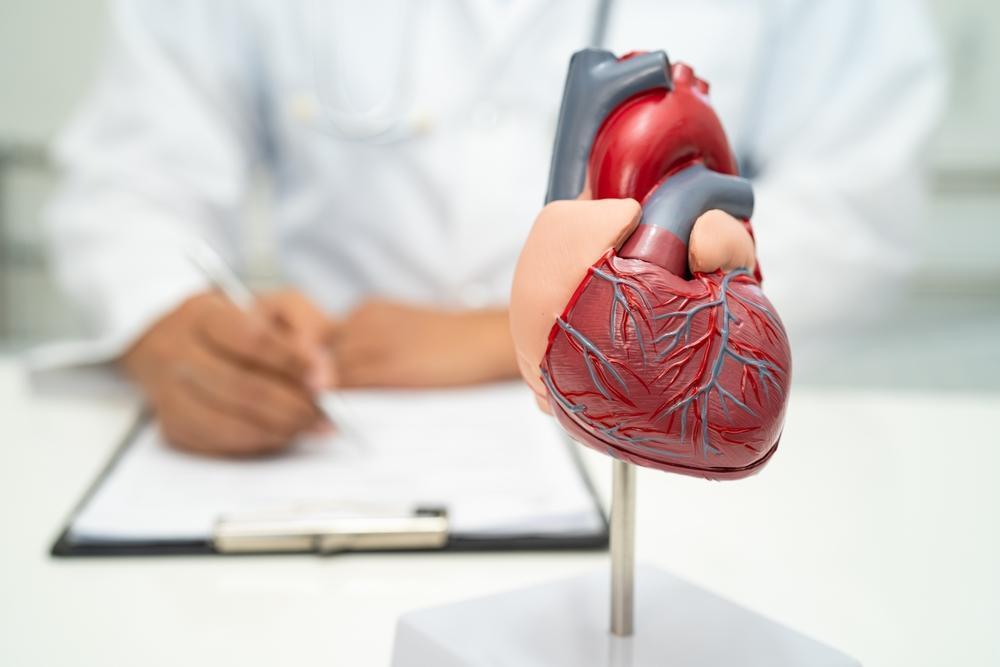Welcome to The Epoch Times Health Brief for Sunday, Oct. 20, 2024. I’m Bill Thomas, we have several important stories to share with you right now, and here’s what’s going on.
Your blood type could be a contributing factor in developing heart disease, drinking water while eating might actually be bad for you, and an experiment by a Harvard University medical student who ate 24 eggs a day for a month is highlighting a new trend in scientific research.
Also, we have new information to share with you today regarding a certain vitamin that is essential for boosting energy as well as for fighting cancer, and fasting may have a surprising role in healing your body.
Blood Type Linked to Cardiovascular Health—Non-O Blood Types May Have Higher Risk
This might sound a bit odd, but recent studies have found that people with blood types A, B, or AB could be at a higher risk for heart disease compared to people with type O blood.In fact, a study of more than 60,000 women found that the risk increases by 23 percent for those with type AB, while type B participants saw a 15 percent increase, and type A isn’t far behind with a 6 percent higher likelihood of developing serious conditions such as coronary heart disease.
Another study involving more than a million men and women found that people who did not have type O blood had a 9 percent increased risk of cardiovascular problems such as heart attack, and the risk goes up substantially among people with diabetes.
Now, you might wonder what’s behind these blood type issues. Scientists think that proteins in types A and B blood can cause more blockage in veins and arteries, which could possibly lead to all kinds of trouble for the heart down the road.
But don’t let this news stress you out too much. While blood type may play a role in heart disease, it’s not the only factor that counts. Lifestyle choices like diet, exercise, and stress management are important to your overall heart health.
So, if you’re mindful of your habits, you can still keep your heart in good shape—even if that blood cruising through your veins is not type O.
To Drink or Not to Drink: The Mealtime Water Dilemma
Here’s the deal: your body needs water for all sorts of things, including digestion. But some experts, like internist Dr. Manisha Ghei, say you might want to hold off on drinking water for a couple hours after eating because it could make acid reflux symptoms, such as heartburn, worse.Remember to listen to your body. If you’re feeling bloated after drinking water with your meal, next time, simply try limiting how much water you drink. And here’s a cool tip: to avoid dehydration, drink water throughout the day so you’re not overly thirsty at mealtime.
Here’s how you do that: Aim for about half your body weight in ounces of water daily. So if you’re 150 pounds, shoot for 75 ounces a day. And don’t forget, you can get water from foods too—think cucumbers, tomatoes, and watermelon because these foods are all more than 90 percent water. If plain water is too boring for you, then try adding some lemon or a pinch of salt for flavor and extra minerals.
Regarding the right temperature, it may be best to drink room-temperature water. Ghei says it is best to skip ice-cold water, especially when you’re eating, because cold water could lead to bloating and other types of digestive discomfort.
Harvard Med Student Eats 720 Eggs in 30 Days, Highlighting a Trend in N=1 Science
Harvard medical school student Nick Norwitz went viral for eating 720 eggs in just a month, and that’s the equivalent of 24 eggs a day.And here’s the shocking part: his “bad” cholesterol actually dropped by 18 percent. Now, he’s not telling everyone to go egg-crazy, but he is trying to demonstrate this new trend called N-of-1 (N=1) science, which is all about personalized experiments.
Traditional research sometimes misses the mark for people as a whole because, let’s face it, we’re all different. Instead of relying on big studies that give you averages, N-of-1 science is meant to let you figure out exactly what works for you, whether it’s tweaking your diet, trying a new exercise, or adjusting your meds.
But here’s the deal: while N-of-1 science may be innovative, it is not perfect. It offers insights based on personal experiences, but it comes with some pretty big caveats.
While social media makes sharing what you find about your health more relatable, it’s kind of a double-edged sword. As Norwitz points out, once an experiment is out there, catchy headlines can twist the narrative, and you have no control over how people interpret your findings.
Also, N-of-1 science doesn’t have the scientific rigor of traditional studies, which means personal experiments can be swayed by biases and other factors. In the end, you may be better off treating N-of-1 science as a supplement to conventional research, not a replacement, and always remember to check with your doctor before you go wild with any self-experiments.
Niacin: The Energizer Powering Your Cells and Fighting Cancer
We are talking about niacin, more commonly known as vitamin B3. This little powerhouse is all about giving your cells the energy they need to keep everything humming along.This amazing vitamin helps turn the food you’re eating into fuel, all while helping build and repair your damaged cells.
But hold on, vitamin B3 isn’t just for energy; it’s also a rockstar when it comes to skin health, according to a famous study dating all the way back to the 1910s. That’s when a guy called Dr. Joseph Goldberger was on a mission to figure out what was wreaking havoc on people suffering from pellagra, a complicated disease causing rough skin, digestive woes, and even mental issues.
Here’s where it gets even more interesting: Goldberger had a hunch that pellagra wasn’t caused by a germ, but from people not eating the right foods. So he limited his patients’ corn intake and added things like milk, eggs, and beans to their diets, and, soon enough, their symptoms went away. Years later, a biochemist figured out it was all about vitamin B3, which was a discovery now seen as a milestone in medical history.
But this is more than just about preventing diseases. Vitamin B3 also helps detoxify the body and defends against oxidative stress, making it an important player in keeping us healthy. You can find this vitamin in foods like chicken, fish, sesame seeds, nuts, and whole grains, so it’s pretty easy to incorporate it into your meals.
However, while it’s important to get enough vitamin B3, be careful—too much of it can lead to health complications, including high cholesterol, jaundice, and, in more serious cases, even liver failure. You should also know that B3 could possibly reduce the effectiveness of certain prescription medications that you’re currently taking. So, if you’re thinking about taking B3 supplements, it’s a good idea to check with your doctor first. Just trying to keep you healthy.
Fasting Activates Cell Repair Mechanism, Reverses Disease
Many of us have heard about the positive things fasting can do for your body. It turns out that when we reduce our calorie intake, we’re actually activating a vital cell repair process called autophagy.It’s like your cells going into spring cleaning mode, tidying up all the clutter and waste in your body. This process helps keep our cells healthy and can even prevent diseases, making fasting kind of a holistic option to improve our overall health.
So you know, here’s what’s happening during this process: The cells in your body respond to a lack of nutrients and then activate specific proteins. These proteins help create a bubble-like structure that gathers up the cell’s waste and turns it into energy.
Now, here’s where fasting really shines: when you don’t eat for a while, your cells notice the dip in energy and kickstart autophagy to sort themselves out. Research shows that this can lead to improved cell health and help lower the risk of conditions such as cancer and heart disease.
Some research even suggests that maintaining a healthy level of autophagy can prevent certain diseases and help us age well. When the body’s recycling system slows down, the trash in the cells begins to pile up, eventually causing all sorts of problems, from metabolic disorders to brain conditions.
But let’s not forget that fasting isn’t for everyone. Some people, especially those with chronic illnesses, should talk to a doctor before trying fasting. There are various methods to try, like the popular 16:8 approach, where you fast for 16 hours and eat within an 8-hour window, or the 5:2 method, which allows normal eating for five days and limits calorie intake on two non-consecutive days of the week.
In the end, fasting offers an opportunity to give your body the time it needs to repair and rejuvenate itself. But before you begin any substantial health or lifestyle changes, including fasting, make sure you talk with your doctor first.
And now, it looks like our time is just about up for today, so we’re going to call it a wrap for today’s edition of The Epoch Times Health Brief.
And don’t forget about the Health Brief Motto: We’re portable, affordable, and always on-demand.
We’ll wrap things up with a very notable quote from famous American writer Mark Twain, who said: “The secret of getting ahead is getting started.”
Something to think about as we start a new work week tomorrow.
And finally, we leave you with our health tip of the day: Eat slowly. Your food is not going anywhere, we promise.
For all of us here at The Epoch Times Health Brief, I’m Bill Thomas.
The Epoch Times Health Brief program was written today by Hristina Byrnes.
Thank you for making us your one-stop source for a concise, accurate, and unbiased daily synopsis of many of the health stories you need to know about.
Enjoy the remainder of your day, and we'll see you right back here next time for another edition of The Epoch Times Health Brief.
For now, let’s all continue to watch out for one another, and have an absolutely superb day today. Bye for now.





